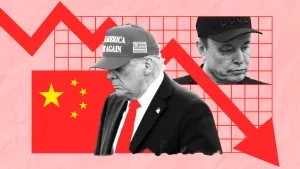One of the features of Western society is the political obsession with the economy. Politicians have trained us to be so focused on the health of the economy that were missing its true purpose. Its not societys role to support the economy; the economy needs to serve society.
For the past decade or so, the unemployment rate in Australia has hovered around 5%. These days, its closer to 4%. For a large swathe of the population, high unemployment is something they can only read about in a history book. Wed have to go back to the mid-90s to see rates in excess of 8%, and even further to see rates over 10%.
The pandemic was expected to see unemployment in Australia reach 10%, but that hasnt happened (although underemployment during a period of rising interest rates has created significant stress for many households).
Related Article Block Placeholder Article ID: 1215708

The Universal Basic Income (UBI) is something that governments around the world have been discussing for some time. Finland conducted a large-scale experiment, offering a UBI to 100,000 randomly selected citizens.
The results of the experiment were interesting in that the UBI made little difference to employment rates. But the cost of the program was offset to a degree, as it was not means-tested and there was no need for participants to report any income they received. That dealt with the bureaucracy often associated with government payments something any Australian who has had to deal with Centrelink is all too aware of.
The UBI would simplify the social security bureaucracy. Instead of having to test, administer and manage multiple programs, each with its own rules and intricacies, the UBI would be a single system.
It could incentivise people to study. With the world facing a massive technological shift as a consequence of AI, enabling people to undertake education without worrying about whether they can feed their family could deliver substantial benefits.
A UBI could also incentivise the unemployed and underemployed to work without fear of losing benefits. It would reduce government red tape. It would help people who live from paycheck to paycheck feel more secure.
It would have a cost and require the government to look at how it generates income. An untaxed UBI would, of course, need to be funded.
About 80% of Australias population of around 26 million is over the age of 15 roughly 21 million people. If we paid all those people a UBI of $500 per week, the annual cost would be about $546 billion. Thats a little less than all the tax paid by Australians, but more than double what the social welfare system is paying now.
Related Article Block Placeholder Article ID: 1214360

If we were all getting an untaxed base payment, then tax revenue could be raised by removing the tax-free threshold on paid employment. Or maybe a complete review of the tax system?
Governments can create the conditions and stimulus for social change. By providing a UBI, the government could create an environment that ensures everyone has enough money to cover their basic needs.
It would help people who want to be more environmentally friendly afford things like solar energy systems, more energy-efficient appliances or lower-emission cars. It could assist entrepreneurs trying to start new businesses or invent new things.
It could help make homelessness a memory. Health outcomes could be improved as people could afford to visit doctors or purchase medicines they are forgoing today because they have to make choices between food and medical care.
The potential benefits of the UBI are huge. Are we courageous enough to go for it?




